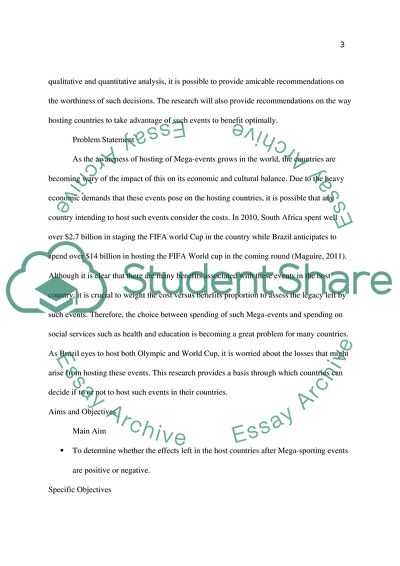Cite this document
(Legacy after the FIFA World Cup and the Olympic Games Research Paper Example | Topics and Well Written Essays - 2250 words, n.d.)
Legacy after the FIFA World Cup and the Olympic Games Research Paper Example | Topics and Well Written Essays - 2250 words. https://studentshare.org/sports-and-recreation/1817339-what-legacy-is-left-in-host-countries-after-major-sporting-events-such-as-the-fifa-world-cup-and-the-olympics
Legacy after the FIFA World Cup and the Olympic Games Research Paper Example | Topics and Well Written Essays - 2250 words. https://studentshare.org/sports-and-recreation/1817339-what-legacy-is-left-in-host-countries-after-major-sporting-events-such-as-the-fifa-world-cup-and-the-olympics
(Legacy After the FIFA World Cup and the Olympic Games Research Paper Example | Topics and Well Written Essays - 2250 Words)
Legacy After the FIFA World Cup and the Olympic Games Research Paper Example | Topics and Well Written Essays - 2250 Words. https://studentshare.org/sports-and-recreation/1817339-what-legacy-is-left-in-host-countries-after-major-sporting-events-such-as-the-fifa-world-cup-and-the-olympics.
Legacy After the FIFA World Cup and the Olympic Games Research Paper Example | Topics and Well Written Essays - 2250 Words. https://studentshare.org/sports-and-recreation/1817339-what-legacy-is-left-in-host-countries-after-major-sporting-events-such-as-the-fifa-world-cup-and-the-olympics.
“Legacy After the FIFA World Cup and the Olympic Games Research Paper Example | Topics and Well Written Essays - 2250 Words”. https://studentshare.org/sports-and-recreation/1817339-what-legacy-is-left-in-host-countries-after-major-sporting-events-such-as-the-fifa-world-cup-and-the-olympics.


